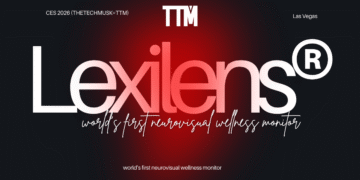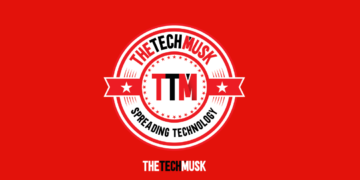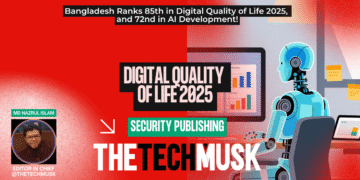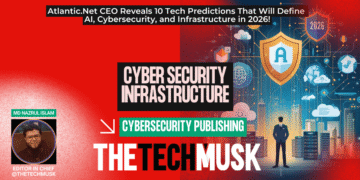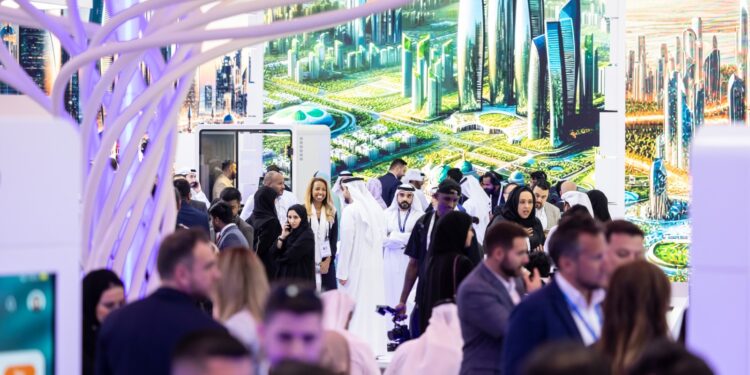- – GITEX GLOBAL spotlighted transformative innovations of digital cities, with global visionaries discussing the trends shaping tomorrow’s urban landscape.
- – The UAE is enhancing its position as a leader in driving the digital city revolution and showcasing its pioneering technologies such as a scannable robot and a sea drone boat for city planning.

Photo Caption: GITEX GLOBAL spotlighted transformative innovations of digital cities, with global visionaries discussing the trends shaping tomorrow’s urban lands
Dubai, UAE – 22 October 2024: GITEX GLOBAL 2024, the world’s largest tech and startup event organized by Dubai World Trade Centre (DWTC), highlighted the UAE’s leadership in driving the future of digital cities, showcasing the most disruptive advancements in urban digitalization and smart living.
The event featured over 6,500 exhibitors, 1,800 startups, and 1,200 investors, alongside governments from more than 180 countries—marking the highest-ever international participation—gathered in Dubai and 200,000 visitors, solidifying the city’s reputation as a premier global hub.
Alongside the showcase, a key conference hosted discussions among policymakers, visionaries, and industry leaders on leveraging advanced technologies like AI, IoT, and robotics to enhance interconnectivity and drive economic growth.
With the digital city industry generating over USD $1.83 trillion in revenue, reflecting a huge 21% increase from last year – according to Precedence Research, as reported in Enterprise Apps Today – the event demonstrated how the UAE is steering the future of cities through cutting-edge initiatives, using AI, IoT, and data driven systems to create hyper-connected, sustainable environments.
The UAE’s Strategic Leadership in Future Cities
The UAE’s investments in digital transformation are positioning the nation among the world’s leaders in digital city development. Dubai and Abu Dhabi have both earned places in the Smart City Index 2024’s top 12 global cities, as per a report compiled by Switzerland’s International Institute for Management Development (IMD), a testament to their rapid advancements in urban technologies.
At the forefront of this digital evolution is the Telecommunications and Digital Government Regulatory Authority (TDRA), responsible for overseeing digital transformation at the federal level. With two strategic goals, enhancing smart lifestyles and strengthening technological infrastructure, TDRA underscored its vision through a prominent presence at GITEX GLOBAL.
Its pioneering initiatives, such as the innovative digital twin platform project, were showcased at the Digital Government Platform, offering real-time simulations of infrastructural and operational systems.
His Excellency Eng. Majed Sultan Al Mesmar, Director General of the Telecommunications and Digital Government Regulatory Authority stated, “We take pride in our participation at GITEX Global 2024, where the Digital Government Platform showcased innovative solutions that exemplify the UAE’s leadership in digital transformation. This year, our collaboration with government partners has enabled us to present a vision for seamless digital services and integrating advanced technologies. At TDRA, we are dedicated to driving the transformation and fostering digital excellence across all sectors, as our shared goals align with the UAE Vision 2031, which emphasizes on sustainability and innovation while contributing to creating a vibrant digital future.”
Driving Dubai’s transformation is the Digital Dubai, guided by the visionary leadership of the emirate. Digital Dubai plays a key role in accelerating Dubai’s digital evolution. Through strategic partnerships, Digital Dubai has been instrumental in elevating the city’s digital economy contribution, building competencies of national talent, and maintaining Dubai’s digital wealth. Innovative initiatives like the “Paperless Strategy,” which made Dubai the first paperless government in the world, unified digital platforms like DubaiNow that offer over 280 digital services, and exceptional digital city experiences such as the “Work Bundle” and “Emirati Bundle” are the driving forces behind the city’s digital transformation.
His Excellency Hamad Obaid Al Mansoori, Director General of Digital Dubai, said: “Over the course of a quarter century of Dubai’s digital transformation, the Dubai World Trade Centre has served as an annual meeting point for the public and private sectors, offering a platform to showcase achievements and outline future plans in utilizing the latest technologies for shaping the future.
This synergy has evolved into a true partnership, positioning Dubai as a global capital for exhibitions, a hub for innovative companies, experts, and forward-thinking minds, and an important contributor to the Dubai Economic Agenda D33. The 2024 edition of GITEX Global marked a qualitative leap into a new era—one defined by the Fourth Industrial Revolution and artificial intelligence, where sustainability, flexibility, efficiency, integration, and customer-centricity take precedence. We emphasize the importance of continuing this partnership, especially given the exceptional nature of the current era, which demands greater cooperation and integration among all stakeholders”
Complementing these efforts, the Roads and Transport Authority (RTA) is advancing its Digital Strategy, with 82 city projects designed to revolutionise urban mobility and infrastructure. RTA’s initiatives are critical in transforming transformation systems, aligning with the broader goal of creating a connected and efficient city.
Leading the charge for sustainable development is Masdar City, a pioneering initiative in Abu Dhabi that plays a fundamental role in the UAE’s net-zero journey. As a model for future cities, Masdar City is redefining how people live, work, learn, and play by integrating pioneering sustainability practices into its urban fabric.
Opportunities and challenges of creating digital cities
At GITEX GLOBAL, Martin Yates, Govt Tech Advisor at Presight of UAE, highlighted the crucial role of technology in overcoming challenges faced by the future urban infrastructures. He emphasized that creating safer, more efficient, and liveable cities aligns with the United Nations’ Sustainable Development Goals.
Discussing how countries can evolve beyond early adoption into optimised digital cities, Yates said: “It depends on a lot of factors such as how we share data, how we budget for it, and how we evolve. Having a shared vision and people coming together is the difference between those that stay in that early development stage and those that get to the optimised stage.”
He added: “Legacy cities like New York face hurdles due to outdated infrastructure, such as old pipes and cables, requiring time-consuming upgrades. In contrast, building new cities offers a faster path to optimisation, as they can install modern infrastructure from the start, achieving high efficiency within three to five years. The timeline also varies with city size – a smaller town can adapt more quickly, whereas larger cities require more time and resources. Ultimately, the pace of progress depends on the scale and resources available.”
Adding to this discussion, Tan Boon Khai, CEO, JTC Corporation, Singapore took part in an insightful session that called for stronger partnerships between public and private sectors when it comes to leveraging tech to tackle urban challenges.
He said: “It requires a lot of partnerships and working together and I think we’ve very optimistic that technology and AI will play a very big role in how we build future cities.”
In a related session, Dimitri van Zantvliet, the CISO at Dutch Railways and Cybersecurity Director, emphasised the pivotal role of cybersecurity in fostering trust among citizens. He said: “Cybersecurity is crucial for digital cities and citizen transformation. As cities evolve to become smarter and more cognitive through AI integration, the foundation of their success ultimately hinges on trust.”
Showcasing Innovations Driving Digital Growth
Amidst these insightful discussions, attendees experienced a first-hand view of some of the groundbreaking innovations propelling the growth of digital cities. Among the highlights was Dubai Municipality’s Robot Scanner, which scans ground levels and subsurfaces to aid in city planning and infrastructure development.
Visitors also explored the Uni-Mini, a compact and lightweight unmanned surface vehicle, developed by Unique Group, in collaboration with Dubai Municipality, designed to conduct survey operations with minimal effort and manpower.
Furthermore, Abu Dhabi showcased its advanced smart traffic system, which integrates multiple advanced technologies to enhance urban mobility. This system features dedicated box sensors and variable messaging to alert drivers of any adverse weather conditions.
Connecting The Global Tech Landscape
GITEX GLOBAL continues to strengthen its role as a connector for the global technology ecosystem, seamlessly integrating the world’s largest network of tech events, including GITEX AFRICA Morocco from 14-16 April and GITEX ASIA Singapore on 23-25 April. Following these, GITEX EUROPE Berlin will take place from 21-23 May 2025, leading to the debut of GITEX NIGERIA in September 2025.
Looking ahead, GITEX GLOBAL is set to take place from 13-17 October 2025, promising another year of heightened innovation and cross-collaboration within the tech industry. In 2026, GITEX GLOBAL will relocate to Expo City Dubai, further expanding its reach and impact.
More information on GITEX GLOBAL, please visit www.gitex.com

